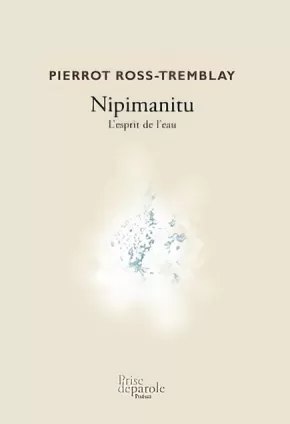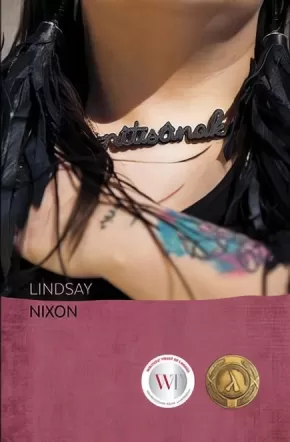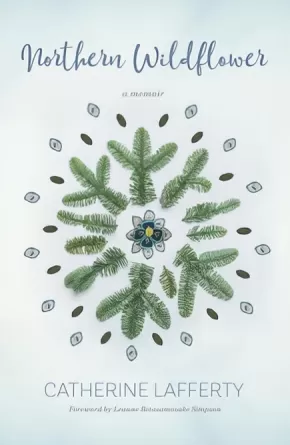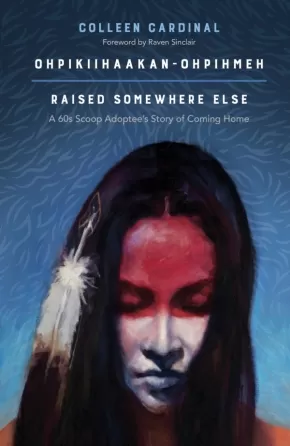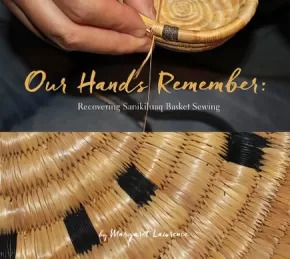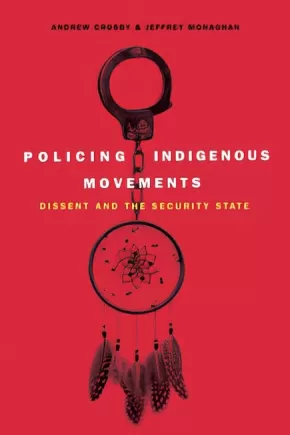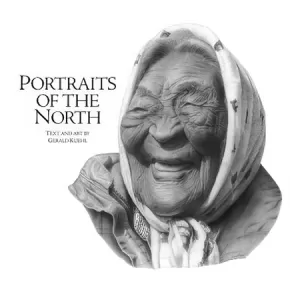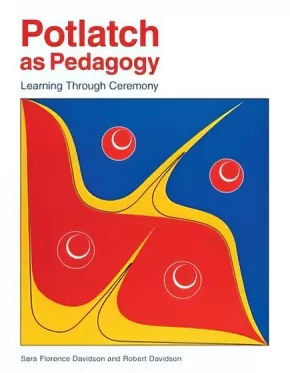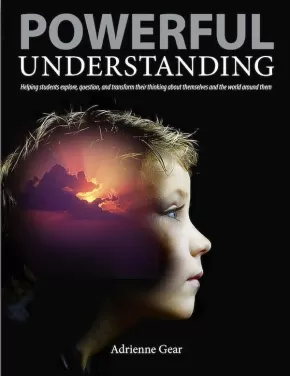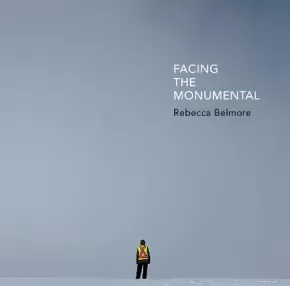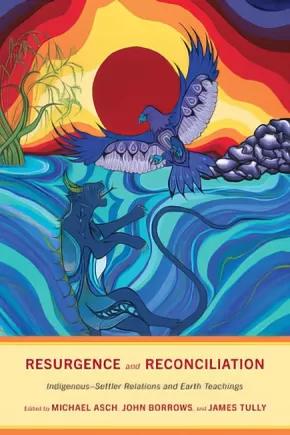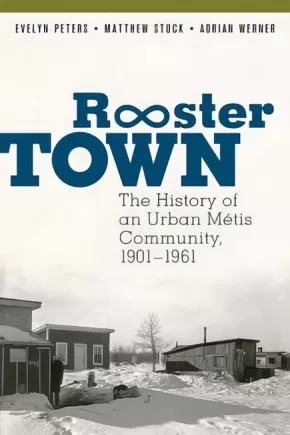
Adult Book
1081
-
1095
of
1380 Results;
Sort By
Go To
of 92
Nipimanitu: L'Esprit de l'Eau (1 in stock)
$18.95
Format:
Paperback
Text Content Territories:
Indigenous Canadian; First Nations; Innu (Montagnais-Naskapi);
ISBN / Barcode: 9782897440954
Synopsis:
Synopsis:
Nipimanitu (L’esprit de l’eau) offre une poésie spirituelle et mystique de l’effondrement, écrite dans l’urgence de tout dire. En trois mouvements – amour intégral, chute et trahison, puis résilience et retour à la vision claire –, il livre un chant révolutionnaire, puisant aux sources de la conscience, du rêve et de la mémoire, qui appelle à une transformation radicale de notre regard sur le monde.
La poésie symboliste de Ross-Tremblay traduit une métaphysique profondément innue qui repousse les limites du langage. L’auteur y exprime une cosmogonie qui aspire à l’immanence et à l’osmose entre l’humain et ce qui fonde sa vie.
Awards
- 2019 Indigenous Voices Award winner for Published Works in French
Educator Information
Genre: Poetry
Subjects & Themes: Indigenous Canadian; Nature
Additional Information
134 pages | 5.51" x 8.50"
nîtisânak
$19.95
Format:
Paperback
Text Content Territories:
Indigenous Canadian; First Nations; Anishinaabeg; Ojibway; Saulteaux; Cree (Nehiyawak); Métis;
Grade Levels: University/College;
ISBN / Barcode: 9780994047175
Synopsis:
Synopsis:
Lindsay Nixon's nîtisânak honours blood and chosen kin with equal care. A groundbreaking memoir spanning nations, prairie punk scenes, and queer love stories, it is woven around grief over the loss of their mother. It also explores despair and healing through community and family, and being torn apart by the same. Using cyclical narrative techniques and drawing on their Cree, Saulteaux, and Métis ancestral teachings, this work offers a compelling perspective on the connections that must be broken and the ones that heal.
Awards
- 2019 Indigenous Voices Award short-listed
- 2019 The Dayne Ogilvie Prize for LGBTQ Emerging Writers
Reviews
"A tremendous gift... unlike any other reading experience I've had" - Leanne Betasamosake Simpson
"A triumph of decolonial and non-normative storytelling." -Dayne Ogilvie Prize for LGBTQ2S+ Emerging Writers jury citation
"nitisanak is wildly interesting, thoughtful, and tender, but also utterly uncompromising." -Jessie Loyer, The Capilano Review
Additional Information
200 pages | 5.25" x 8.00" |
Northern Wildflower: A Memoir
$20.00
Format:
Paperback
Text Content Territories:
Indigenous Canadian; First Nations; Dene;
Grade Levels: 12; University/College;
ISBN / Barcode: 9781773630403
Synopsis:
Synopsis:
This is the story of how a young northern girl picked herself up out of the rough and polished herself off like the diamond that she is in the land of the midnight sun.
Northern Wildflower is the beautifully written and powerful memoir of Catherine Lafferty. With startling honesty and a distinct voice, Lafferty tells her story of being a Dene woman growing up in Canada’s North and her struggles with intergenerational trauma, discrimination, poverty, addiction, love, and loss. Focusing on the importance of family ties, education, spiritualism, cultural identity, health, happiness, and the courage to speak the truth, Lafferty’s words bring cultural awareness and relativity to Indigenous and non-Indigenous readers alike, giving insight into the real issues many Indigenous women face and dispelling misconceptions about what life in the North is like.
Reviews
"Catherine Lafferty’s life story as a daughter and mother wanting more for her family and for herself is so completely inspiring. Northern Wildflower is a celebration of soul, grace and dignity. I am floored with the talent, courage and heart inside this wonderful debut." — Richard Van Camp, author of The Lesser Blessed
Additional Information
158 pages | 6.00" x 9.00"
Ohpikiihaakan-ohpihmeh — Raised Somewhere Else: A 60s Scoop Adoptee's Story of Coming Home
$20.00
Format:
Paperback
Text Content Territories:
Indigenous Canadian; First Nations; Cree (Nehiyawak); Plains Cree;
ISBN / Barcode: 9781773630205
Synopsis:
Synopsis:
During the 60s Scoop, over 20,000 Indigenous children in Canada were removed from their biological families, lands and culture and trafficked across provinces, borders and overseas to be raised in non-Indigenous households.
Ohpikiihaakan-ohpihmeh — Raised Somewhere Else delves into the personal and provocative narrative of Colleen Cardinal’s journey growing up in a non- Indigenous household as a 60s Scoop adoptee. Cardinal speaks frankly and intimately about instances of violence and abuse throughout her life, but this book is not a story of tragedy. It is a story of empowerment, reclamation and, ultimately, personal reconciliation. It is a form of Indigenous resistance through truth-telling, a story that informs the narrative on missing and murdered Indigenous women, colonial violence, racism and the Indigenous child welfare system.
Reviews
“With Canadians slowly awakening to the reality of the 60s Scoop and its ongoing repercussions, Cardinal’s inspiring work here is essential reading and will be an integral resource for generations to come.” — Waubgeshig Rice, author of Legacy
“Offers a window through which readers can see why cultural suppression is such a dark chapter in Canada’s history.” — Winnipeg Free Press
“I highly recommend reading this story for anyone interested in learning more about the Sixties Scoop and understanding what’s really happening under the stereotypes put on many Indigenous by those who do not truly understand.” — All Booked
Educator Information
The Canadian Indigenous Books for Schools list recommends this resource for Grades 10-12 for English Language Arts.
Additional Information
214 pages | 6.00" x 9.00" | Foreward by Raven Sinclair
Otter's Journey through Indigenous Language and Law
$34.95
Format:
Paperback
Text Content Territories:
Indigenous New Zealander; Indigenous Canadian; Inuit; First Nations; Anishinaabeg; Ojibway;
Grade Levels: University/College;
ISBN / Barcode: 9780774836586
Synopsis:
Synopsis:
Otter’s Journey employs the Anishinaabe tradition of storytelling to explore how Indigenous language revitalization can inform the emerging field of Indigenous legal revitalization. Indigenous languages and laws need bodies to live in. Learning an endangered language and a suppressed legal system are similar experiences. When we bring language back to life, it becomes a medium for developing human relationships. Likewise, when laws are written on people’s hearts, true revitalization has occurred.
Storytelling has the capacity to address feelings and demonstrate themes – to illuminate beyond argument and theoretical exposition. In Otter’s Journey, Lindsay Keegitah Borrows follows Otter, a dodem (clan) relation from the Chippewas of Nawash First Nation, on a journey across Anishinaabe, Inuit, Māori, Coast Salish, and Abenaki territories, through a narrative of Indigenous resurgence. While Otter’s Journey is guided by a literal truth, it also splices and recombines real-world events and characters.
Through her engaging protagonist, Borrows reveals that the processes, philosophies, and practices flowing from Indigenous languages and laws can emerge from under the layers of colonial laws, policies, and languages to become guiding principles in people’s contemporary lives. We need the best of all people’s teachings to lead us into the future.
Students and scholars in a wide range of subfields within Indigenous studies will find this book of considerable appeal, as will scholars and students of law, literature, education, and language studies, and those with an interest in Indigenous methodologies.
Reviews
"Otter’s Journey holds the potential to change the way people think about and, in turn, talk about Indigenous laws and Indigenous language acquisition and reacquisition ... The elemental way in which legal storytelling is embedded in the text makes Indigenous laws and language normative, not as things to be justified or even accommodated. Eloquent, poetic, and lyrical, this book marks a rare and even generational shift in the dialogue by and about Indigenous peoples." - Tracey Lindberg, author of Birdie, and professor of law and University Research Chair in Indigenous Laws, Legal Orders and Traditions at the University of Ottawa
"Otter's Journey offers a vibrant account of the possibilities and importance of Indigenous language revitalization. Weaving oral narrative, prose fiction, and autobiography, Lindsay Borrows models a scholarly practice grounded in family, community, and storytelling. This is an important academic contribution – and also a new work of Indigenous literature by an emerging writer of considerable skill." - Keavy Martin, author of Stories in a New Skin: Approaches to Inuit Literature, and associate professor in the Department of English and Film Studies at the University of Alberta
Additional Information
236 pages | 6.00" x 9.00"
Our Hands Remember: Recovering Sanikiluaq Basket Sewing
$24.95
Format:
Paperback
Text Content Territories:
Indigenous Canadian; Inuit;
ISBN / Barcode: 9781772271645
Synopsis:
Synopsis:
Sanikiluaq, a small Inuit community in the Belcher Islands region of the Far North, has a long history of artistic output. But as the demand for stone carvings grew, grass basket sewing—once a traditional skill for Inuit women—faded from the community consciousness. That was until a group of women, including educator and artist Margaret Lawrence, came together to renew the lost art of basket sewing.
In Our Hands Remember: Recovering Sanikiluaq Basket Sewing, Lawrence guides readers through creating their own grass baskets in the unique style of the Sanikiluaq region with step-by-step instructions and photographs. From tips on preparing the grass and forming even coils to the different types of embellishments, this book is accessible to all skill levels.
Additional Information
120 pages | 9.00" x 8.50" | Colour Photographs
Policing Indigenous Movements
$25.00
Format:
Paperback
Text Content Territories:
Indigenous Canadian;
Grade Levels: University/College;
ISBN / Barcode: 9781773630120
Synopsis:
Synopsis:
In recent years, Indigenous peoples have lead a number of high profile movements fighting for social and environmental justice in Canada. From land struggles to struggles against resource extraction, pipeline development and fracking, land and water defenders have created a national discussion about these issues and successfully slowed the rate of resource extraction.
But their success has also meant an increase in the surveillance and policing of Indigenous peoples and their movements. In Policing Indigenous Movements, Crosby and Monaghan use the Access to Information Act to interrogate how policing and other security agencies have been monitoring, cataloguing and working to silence Indigenous land defenders and other opponents of extractive capitalism. Through an examination of four prominent movements — the long-standing conflict involving the Algonquins of Barriere Lake, the struggle against the Northern Gateway Pipeline, the Idle No More movement and the anti-fracking protests surrounding the Elsipogtog First Nation — this important book raises critical questions regarding the expansion of the security apparatus, the normalization of police surveillance targeting social movements, the relationship between police and energy corporations, the criminalization of dissent and threats to civil liberties and collective action in an era of extractive capitalism and hyper surveillance.
In one of the most comprehensive accounts of contemporary government surveillance, the authors vividly demonstrate that it is the norms of settler colonialism that allow these movements to be classified as national security threats and the growing network of policing, governmental, and private agencies that comprise what they call the security state.
Reviews
“An accessible must-read for all Canadians concerned about respectful relations with indigenous people and the decline of civil rights in the war-on-terror era.” — Publishers Weekly
Additional Information
192 pages | 6.00" x 9.00"
Popcorn Elder
$15.95
Format:
Paperback
Text Content Territories:
Indigenous Canadian; First Nations; Cree (Nehiyawak);
ISBN / Barcode: 9781927922392
Synopsis:
Synopsis:
Darren, newly on parole from prison, has been ordered by the court to live with his father on the rez. Wally and Darren have always had a contentious relationship: Wally is a problem drinker, and Darren's got a short fuse. But Wally tells his son that he's changed, has stopped drinking and started going to ceremony, and he urges Darren to do the same. As old family secrets start to be revealed, the father and son grapple with complex issues.
Popcorn Elder examines the problem of "plastic shamans" who offer spirituality at a price. It looks at a community working to face its demons and heal past trauma. And at the heart of the play is the story of a father and son, filled with anger, guilt, and pain, seeking connection and reconciliation.
Through flashbacks, a combination of Cree and English, and an unforgettable cast of characters, Popcorn Elder tells the story of one family's journey toward hope.
Educator Information
Contains sexual abuse references and explicit language.
Recommended in the Canadian Indigenous Books for Schools 2019-2020 resource list for grades 10 to 12 for Acting, Drama, English Language Arts, and Social Studies.
Additional Information
72 pages | 5.50" x 8.50"
Portraits of the North
$29.95
Artists:
Format:
Paperback
Text Content Territories:
Indigenous Canadian; First Nations; Anishinaabeg; Oji-Cree; Ojibway; Cree (Nehiyawak); Dene; Métis;
ISBN / Barcode: 9781988182414
Synopsis:
Synopsis:
This gorgeous book offers an incomparable glimpse into the experiences and history of more than one hundred First Nations and Métis elders from Canada’s North —“the last generation born on the land.” These stunning graphite pencil portraits are rendered with love, respect, and painstaking detail, along with gripping intimate profiles assembled from oral accounts and anecdotes. Their poignant facial features, lines, and creases, weathered by the harsh outdoors and a lifetime of challenges, are like badges of their remarkable achievements, sustained resolve, inspired patience, and deep-set defiance to the hardships their people have endured for generations. The masterful realism of Kuehl’s work helps uncover the tales of these seasoned individuals—their many triumphs and trials revealing in turn a greater portrait of life in the communities of Northern Canada, a compelling homage, and an enduring historical legacy. The portraits capture images of Cree, Ojibway, Oji-Cree, Dene and Métis peoples.
Additional Information
236 pages | 10.03" x 10.03"
Potlatch as Pedagogy: Learning Through Ceremony
$28.00
Format:
Paperback
Text Content Territories:
Indigenous Canadian; First Nations; Haida;
Grade Levels: University/College;
ISBN / Barcode: 9781553797739
Synopsis:
Synopsis:
Inspired by Haida ceremonial practice, father and daughter present a model for learning that is holistic, relational, practical, and continuous.
In 1884, the Canadian government enacted a ban on the potlatch, the foundational ceremony of the Haida people. The tradition, which determined social structure, transmitted cultural knowledge, and redistributed wealth, was seen as a cultural impediment to the government’s aim of assimilation.
The tradition did not die, however; the knowledge of the ceremony was kept alive by the Elders through other events until the ban was lifted. In 1969, a potlatch was held. The occasion: the raising of a totem pole carved by Robert Davidson, the first the community had seen in close to 80 years. From then on, the community publicly reclaimed, from the Elders who remained to share it, the knowledge that has almost been lost.
Sara Florence Davidson, Robert’s daughter, would become an educator. Over the course of her own education, she came to see how the traditions of the Haida practiced by her father—holistic, built on relationships, practical, and continuous—could be integrated into contemporary educational practices. From this realization came the roots for this book.
Reviews
"Potlatch as Pedagogy is wonderfully wise, hopeful, heartful, eloquent, and loving! Every teacher candidate and teacher needs to read this book. The authors expertly evoke the history and culture of the Haida as they call forth the sadness as well as the hope and joy of generations of people who were misunderstood and mistreated. In this time of Truth and Reconciliation, we all need to attend to this book." —Dr. Carl Leggo, Professor, Department of Language and Literacy Education, University of British Columbia
Educator Information
For all teachers.
Recommended in the Canadian Indigenous Books for Schools 2019-2020 resource list as a Teacher Resource for grades 10 to 12 with reference to Social Studies.
Additional Information
200 pages | 7.00" x 9.00"
Powerful Understanding: Helping Students Explore, Question, and Transform Their Thinking about Themselves and the World Around Them
$24.95
Format:
Paperback
ISBN / Barcode: 9781551383286
Synopsis:
Synopsis:
Helping students explore, question, and transform their thinking about themselves and the world around them.
In these challenging times, teaching children to think critically and reflectively AND be compassionate, responsible and caring citizens at the same time is a tall order. Powerful Understanding explores effective ways to build social-emotional skills and help students make connections, question what they read, and reflect on their learning as they develop into stronger readers and learners. Strategic and critical thinking strategies revolve around core anchor books that help integrate thinking into everything you teach—from social responsibility, to immigration, to life cycles. This highly readable book includes a wealth of classroom examples and extensive hands-on activities designed to help students to think more deeply, learn more widely, and develop a more powerful understanding of what it means to be a responsible and compassionate person.
Educator Information
Grade Range: K-8
Table of Contents
Preface
Introduction
Chapter 1: The Components of Powerful Understanding
Chapter 2: Lessons on Understanding Self
Chapter 3: Lessons on Understanding Others
Chapter 4: Lessons on Understanding the World
Final Thoughts
Acknowledgments
Professional Resources
Index
Additional Information
160 pages | 8.30" x 10.80"
Rebecca Belmore: Facing the Monumental
$40.00
Artists:
Editors:
Format:
Hardcover
Text Content Territories:
Indigenous Canadian; First Nations; Anishinaabeg; Ojibway; Lac Seul;
ISBN / Barcode: 9781773100968
Synopsis:
Synopsis:
Facing the monumental issues of our time.
In a 2012 performance piece, Rebecca Belmore transformed an oak tree surrounded by monuments to colonialism in Toronto's Queens Park into a temporary "non-monument" to the Earth.
For more than 30 years, she has given voice in her art to social and political issues, making her one of the most important contemporary artists working today. Employing a language that is both poetic and provocative, Belmore's art has tackled subjects such as water and land rights, women's lives and dignity, and state violence against Indigenous people. Writes Wanda Nanibush, "by capturing the universal truths of empathy, hope and transformation, her work positions the viewer as a witness and encourages us all to face what is monumental."
Rebecca Belmore: Facing the Monumental presents 28 of her most famous works, including Fountain, her entry to the 2005 Venice Biennale, and At Pelican Falls, her moving tribute to residential school survivors, as well as numerous new and in-progress works. The book also includes an essay by Wanda Nanibush, Curator of Indigenous Art at the AGO, that examines the intersection of art and politics.
Rebecca Belmore is one of Canada's most distinguished artists. She has won the Hnatyshyn Award (2009), the Governor General's Award in Visual and Media Arts (2013), and the Gershon Iskowitz Prize (2016). A member of Lac Seul First Nation, she was the first Aboriginal woman to represent Canada at the Venice Biennale. She has also participated in more than 60 one-person and group exhibitions around the world.
Additional Information
132 pages | 10.25" x 10.25" | 198 Illustrations
Resurgence and Reconciliation: Indigenous-Settler Relations and Earth Teachings
$42.95
Editors:
Format:
Paperback
Text Content Territories:
Indigenous Canadian;
Grade Levels: University/College;
ISBN / Barcode: 9781487523275
Synopsis:
Synopsis:
The two major schools of thought in Indigenous-Settler relations on the ground, in the courts, in public policy, and in research are resurgence and reconciliation. Resurgence refers to practices of Indigenous self-determination and cultural renewal whereas reconciliation refers to practices of reconciliation between Indigenous and Settler nations, such as nation-with-nation treaty negotiations. Reconciliation also refers to the sustainable reconciliation of both Indigenous and Settler peoples with the living earth as the grounds for both resurgence and Indigenous-Settler reconciliation.
Critically and constructively analyzing these two schools from a wide variety of perspectives and lived experiences, this volume connects both discourses to the ecosystem dynamics that animate the living earth. Resurgence and Reconciliation is multi-disciplinary, blending law, political science, political economy, women's studies, ecology, history, anthropology, sustainability, and climate change. Its dialogic approach strives to put these fields in conversation and draw out the connections and tensions between them.
By using “earth-teachings” to inform social practices, the editors and contributors offer a rich, innovative, and holistic way forward in response to the world’s most profound natural and social challenges. This timely volume shows how the complexities and interconnections of resurgence and reconciliation and the living earth are often overlooked in contemporary discourse and debate.
Reviews
"Resurgence and Reconciliation provides a broader critical framework from which readers may begin to reset the charged political landscape of reconciliation. In the quickly expanding literature, law, and activism, some of the urgency of reconciliation has been unnecessarily lost. This book calls for quiet contemplation and a peaceful reframing of discussion and negotiations in what has become a noisy, busy field of Canada’s national reconciliation project." - Jeffery G. Hewitt, Faculty of Law, University of Windsor
"This collection represents a sustained and engaged dialogue between eminent and emerging scholars of Indigenous rights as they attempt to conceptualize, critique, collaborate, and document relationships of reconciliation and resurgence. The editors and contributors take on the complex debates, challenges, intersections, and fractions facing Canadians, both Indigenous and non-Indigenous, making this a profoundly important counter-colonial work." - Jane McMillan, Department of Anthropology, St Francis Xavier University
Additional Information
384 pages | 6.00" x 9.00"
river woman
$19.95
Format:
Paperback
Text Content Territories:
Indigenous Canadian;
ISBN / Barcode: 9781487003463
Synopsis:
Synopsis:
Governor General’s Award–winning Métis poet and acclaimed novelist Katherena Vermette’s second work of poetry, river woman, examines and celebrates love as postcolonial action. Here love is defined as a force of reclamation and repair in times of trauma, and trauma is understood to exist within all times. The poems are grounded in what feels like an eternal present, documenting moments of clarity that lift the speaker (and reader) out of our preconceptions of historical time, while never losing a connection to history. This is what we mean when we describe a work of art as being “timeless.”
Like the river they speak to, these poems return again and again to the same source in search of new ways to reconstruct what has been lost. Vermette suggests that it’s through language and the body — particularly through language as it lives inside the body — that a fragmented self might resurface as once again whole. This idea of breaking apart and coming back together is woven throughout the collection as the speaker revels in the physical pleasures of learning Anishnaabemowin (“the language / I should have already known”), as she contemplates the ongoing negotiation between the natural world and urban structures, and as she finds herself falling into trust with the ones she loves.
Divided into four sections, and written in her distinctively lean and elegantly spare style, where short lines belie the depth within them, river woman explores Vermette’s relationship to nature — its destructive power and beauty, its timelessness, and its place in human history. Here is a poet who is a keen observer of an environment that is both familiar and otherworldly, where her home is alive with the sounds and smells of the land it grows out of, where “Words / transcend ceremony / into everyday” and “Nothing / is inanimate.”
Reviews
“‘A snake carved / into prairie grass,’ river woman is a collection that will stay with you, question you, live in you. One cannot simply tread the surface of its open invitation. There are many layers here below the poetic surface, and Vermette is singer-guide to the true depths of this river. It’s a work to be read, shared, and read again.” — Liz Howard, author of the Griffin Poetry Prize–winning collection Infinite Citizen of the Shaking Tent
“In river woman, Katherena Vermette marshals the maternal energy of the river to spin the lyric poem into something that is awash with vitality. This ethic of care, which each section bears and ricochets about, has at its core a project of repair or nourishment, not just of the natural, but of those of us entangled with it. This us, Vermette deftly shows, is not an empty thing, but is instead teeming with Indigenous life — ‘we are the earth you are hurting.’ We are the river and, in this, we are without end, regardless of what history swells in us. Pick up this book and listen for the musicality of our beautiful rebellion!” — Billy-Ray Belcourt, author of This Wound is a World, winner of the 2018 Griffin Poetry Prize
“river woman again displays Vermette’s extraordinary gift for narrative. ‘Ziibiwan (like a river),’ these are poems that gather pieces of personal experience and Indigenous history and in their sweep are bigger than the spare language we see on the page.” — Armand Garnet Ruffo, author of The Thunderbird Poems
Educator Information
Recommended for ages 16 and up.
Curriculum Connections: English, Poetry, Indigenous Studies, Nature
Additional Information
112 pages | 5.50" x 8.50"
Rooster Town: The History of an Urban Métis Community, 1901–1961
$27.95
Format:
Paperback
Text Content Territories:
Indigenous Canadian; Métis;
Grade Levels: University/College;
ISBN / Barcode: 9780887558252
Synopsis:
Synopsis:
Melonville. Smokey Hollow. Bannock Town. Fort Tuyau. Little Chicago. Mud Flats. Pumpville. Tintown. La Coulee. These were some of the names given to Métis communities at the edges of urban areas in Manitoba. Rooster Town, which was on the outskirts of southwest Winnipeg, endured from 1901 to 1961.
Those years in Winnipeg were characterized by the twin pressures of depression and inflation, chronic housing shortages, and a spotty social support network. At the city’s edge, Rooster Town grew without city services as rural Métis arrived to participate in the urban economy and build their own houses while keeping Métis culture and community as a central part of their lives.
In other growing settler cities, the Indigenous experience was largely characterized by removal and confinement. But the continuing presence of Métis living and working in the city, and the establishment of Rooster Town itself, made the Winnipeg experience unique.
Rooster Town documents the story of a community rooted in kinship, culture, and historical circumstance, whose residents existed unofficially in the cracks of municipal bureaucracy, while navigating the legacy of settler colonialism and the demands of modernity and urbanization.
Reviews
"Rooster Town challenges the lingering mainstream belief that Indigenous people and their culture are incompatible with urban life and opens the door to a broader conversation about the insidious nature of racial stereotypes ubiquitous among the broader Canadian polity. — Brenda Macdougall
"Places like Rooster Town are known and talked about within the contemporary Métis world-everybody knows somebody whose parents or grandparents came from these types of invisible and often marginalized communities-but there has been no acknowledgment of their existence within Canadian historical, geographic, sociological, or political scholarship." — Brenda Macdougall
"Very little is written about Indigenous urban histories. They are typically hidden, or erased, from the histories of Prairie cities, and Canadian cities generally. Rooster Town is an authoritative correction to that colonial erasure in the written record." — Ryan Walker
"Rooster Town challenges the lingering mainstream belief that Indigenous people and their culture are incompatible with urban life and opens the door to a broader conversation about the insidious nature of racial stereotypes ubiquitous among the broader Canadian polity. — Brenda Macdougall
"Places like Rooster Town are known and talked about within the contemporary Métis world-everybody knows somebody whose parents or grandparents came from these types of invisible and often marginalized communities-but there has been no acknowledgment of their existence within Canadian historical, geographic, sociological, or political scholarship." — Brenda Macdougall
"Very little is written about Indigenous urban histories. They are typically hidden, or erased, from the histories of Prairie cities, and Canadian cities generally. Rooster Town is an authoritative correction to that colonial erasure in the written record." — Ryan Walker
Additional Information
248 pages | 6.00" x 9.00" | 33 b&w tables, 14 maps
248 pages | 6.00" x 9.00" | 33 b&w tables, 14 maps
Contents
Ch.1—Settler Colonialism and the Dispossession of the Manitoba Métis
Ch.2—The Establishment and Consolidation of Rooster Town, 1901-1911
Ch.3—Devising New Economic and Housing Strategies: Rooster Town during the First World War and After, 1916-1926
Ch.4—Persistence and Community: Rooster Town During and After the Great Depression, 1931-1946
Ch.5—Stereotyping, Dissolution, and Dispersal: Rooster Town, 1951-1961
Conclusion
Ch.1—Settler Colonialism and the Dispossession of the Manitoba Métis
Ch.2—The Establishment and Consolidation of Rooster Town, 1901-1911
Ch.3—Devising New Economic and Housing Strategies: Rooster Town during the First World War and After, 1916-1926
Ch.4—Persistence and Community: Rooster Town During and After the Great Depression, 1931-1946
Ch.5—Stereotyping, Dissolution, and Dispersal: Rooster Town, 1951-1961
Conclusion
Sort By
Go To
of 92

